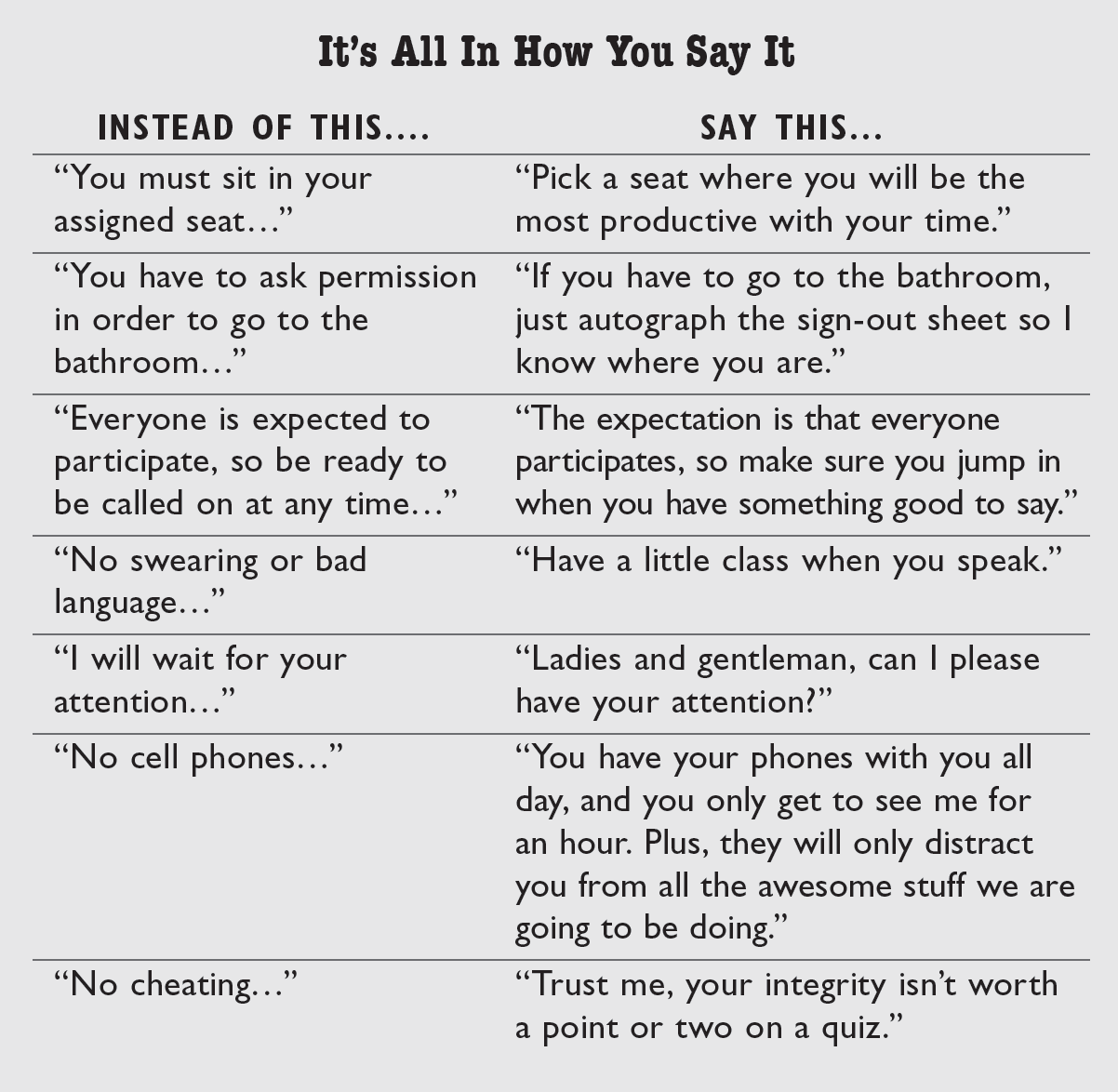The Surprising Truth about Classroom Management
Jul 19, 2025
For years, classroom management has been a huge part of the teacher training process. While this is an extremely important area to master, one fact that many new teachers don't realize when they're in their classrooms for the first time is that classroom management isn't really about making your classroom completely free of negative student behaviors.
The surprising truth is that classroom management doesn't have anything at all to do with what students are doing; it's only about managing what you, as the teacher, are doing.
Problems begin when the teacher posts a list of do's and don'ts in their classroom or writes them on a "class contract." In Hacking Classroom Management, award-winning teacher Mike Roberts jokes, "Nothing gets me pumped up like being given a list of what I can’t do!"
The best way to get students on board is to rework the language, removing the negative tone.
Then, in a more serious tone, Roberts says the problem with rules and consequences is "that effective classroom management isn’t about control. It’s about understanding the needs of your students. So whereas the outdated 1.0 version of classroom management focused on the teacher retaining power over the students, the new 2.0 version provides students with the opportunity to take some ownership in the daily happenings within the classroom."
Empower students, and behavior issues soon disappear
According to Roberts, "Letting students have a voice in the rules and procedures of your class will greatly improve the odds of these concepts lasting throughout the year. By providing them with a say in the rules, it will make it easier to refer back to what 'we' (the class) came up with as a guideline for class, rather than what 'I' (the teacher) assigned if/when things start to fall apart."
Frame expectations in a positive tone
Of course, teachers and learners need expectations. The best way to get students on board is to rework the language, removing the negative tone. For example, instead of saying, "You must remain in your seat," you might say, "Pick a seat where you will be most productive." The image below provides a list of more positive language you can use to share your expectations.

Adapt as you go
One of the most important lessons Roberts has learned in many years of teaching is that educators must adapt.
"Like most everything else about teaching, be ready to adapt these concepts. In a perfect world, all of these classroom management strategies would fit perfectly with your learning community. Unfortunately, I have yet to see a perfect school. Find what works for both you and your class, and build from there."
Remember the truth
Hopefully, education methods courses will begin focusing on collaboration rather than control. As we all know, new educators often begin their careers thinking they must be in complete control and that students should sit quietly and absorb information.
The truth, according to Mike Roberts and many other experienced teachers, is that the most impactful learning environments empower learners and invite them to create expectations in collaboration with the teacher. Students will be more likely to meet and exceed the expectations when they have buy-in.
Remember, classroom management has nothing to do with what students are doing. It's all about the teacher and the environment she creates.






